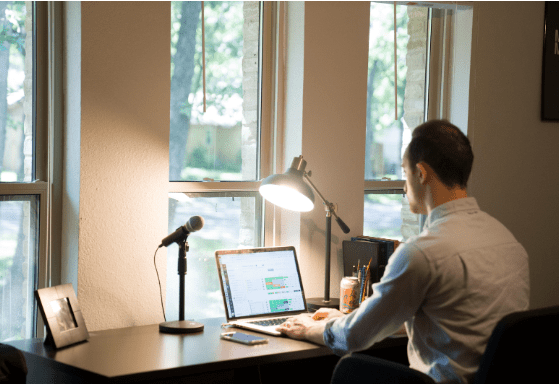Due to the Covid Pandemic, which has made working from home more common over the past few years, it has become a priority to assist people in finding the “perfect” work-life balance that allows them to enjoy their jobs while also spending time with their loved ones.
Some companies have set up a hybrid work environment that enables owners and employees to alternate between the home and the workplace. Businesses have benefited from this in a number of ways, including the reduction of overhead expenses and the retention of employees.
You can deduct allowable costs as a limited company owner if you work from home either full- or part-time. Doing so will lower your corporation tax liability and boost your income. Working from home is a viable choice for you if the tax savings are significant enough (they could be hundreds of pounds).
Our comprehensive guide to running a limited company from home provides a thorough grasp of all the allowable expenses that limited company owners may incur.
HMRC flat rate allowance
The first guideline of business expense and reimbursement is that all expenses must be “wholly and exclusively” for your Limited Company.
When claiming this benefit, no justification is required; however, if you want to claim proportionate expenditures above the £6 per week or £26 per month cap, you’ll need to provide HMRC with documentation.
Claiming for a proportion of household expenses
You are entitled to reimbursement for any costs incurred if you use your home in a significant manner to conduct your business, but you must be able to support your claims.
You can only claim for the extra expenses incurred as a result of working from home, which is different from the regulations that apply to sole traders.
In other words, any expenses that you would have incurred regardless because maintaining a house is a necessity are not included. As are any expenses that are considered to have a “duality of purpose,” or items that have both a personal and professional use but cannot be distinguished.
The cost of allowable expenditures (gas, electricity, and metered water) can be calculated by dividing the number of rooms in your property by the amount of time you spend working in each one.
However, since you would have had to pay for these expenses anyway, such as council tax, rent, and mortgage interest, you cannot claim any fixed costs as a limited company director.
Signing a rental agreement with your business
For this choice, you and your company must enter into a rental arrangement. A commercial document must be used to make the agreement, and it must specify the rental fee to be paid for the use of your home. It is suggested in this situation that a leasing agent offer a rent estimation. This will then serve as a guide for you as you determine the space’s value.
When you pay the rental income you will need to declare it through the self-assessment procedure, tax may therefore be due on the rent payments made on the property. To get an accurate estimate of your rent, speak with a nearby estate agency.
Phone expenses
Internet
In order to claim for the cost of the internet in your business you must ensure that your company enters into the agreement with the internet provider.
Telephone
To be eligible to deduct the full tax paid on telephone invoices, there must be a written contract between the business and the service provider. You can deduct the full cost of a mobile contract in your company’s name as a business expense on your tax return. There is no need to report any personal calls made on the company line because they are regarded as tax-free.
The fact that you will almost certainly have to use one of your phone provider’s business tariffs, which might be more expensive than the equivalent personal tariff, is a drawback of signing a phone contract under your company name.
Looking for expert support for your limited company?
It’s crucial to be tax compliant when operating a company. Additionally, people appreciate increasing their current level of revenue. You can make this a reality by taking advantage of the expense deduction while operating a limited business from home. It is critical to keep in mind that all costs incurred must be used exclusively for business purposes when figuring out the allowable costs that could be deducted from your limited company’s revenue.
Our expert team can offer advice and support on all aspects of limited company taxes, to ensure you’re meeting all tax obligations and maximising your profits.
Contact us today for a free discovery chat.
Running a limited company from home FAQs
What can I claim as a limited company working from home?
If you operate as a limited company, you have three options for calculating your home office costs: using the flat rate set by HMRC, deducting a part from your utility costs, or negotiating a lease with your limited company.
Does running a business from home affect council tax?
If you work from home, the council may assess business rates on the area of your property that is used for business, while the remainder of your property will be subject to council tax (although your property’s valuation band may change) and this is a downside to opting for the rental agreement route.
Can directors claim the working from home allowance?
This option for requesting a working from home allowance for a company director comes with no questions asked and no justification necessary. If you only occasionally work from home, HMRC permits your company to reimburse you minimal expenses to cover any these general expenses.






